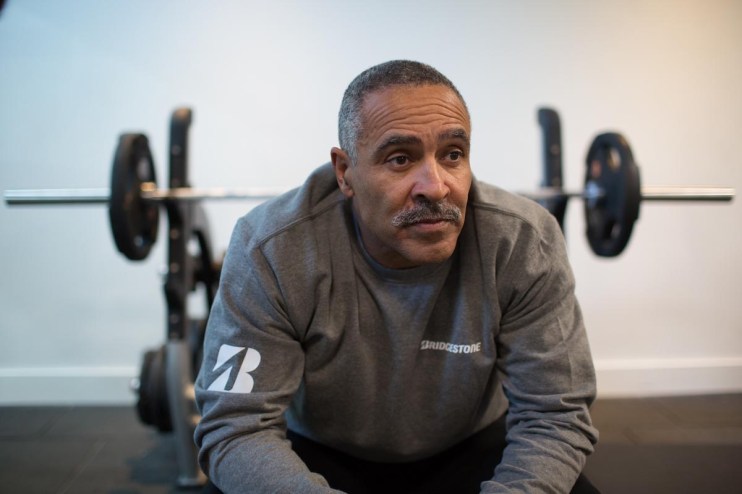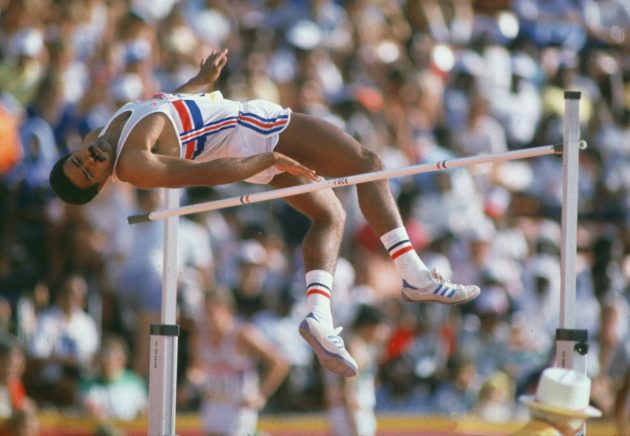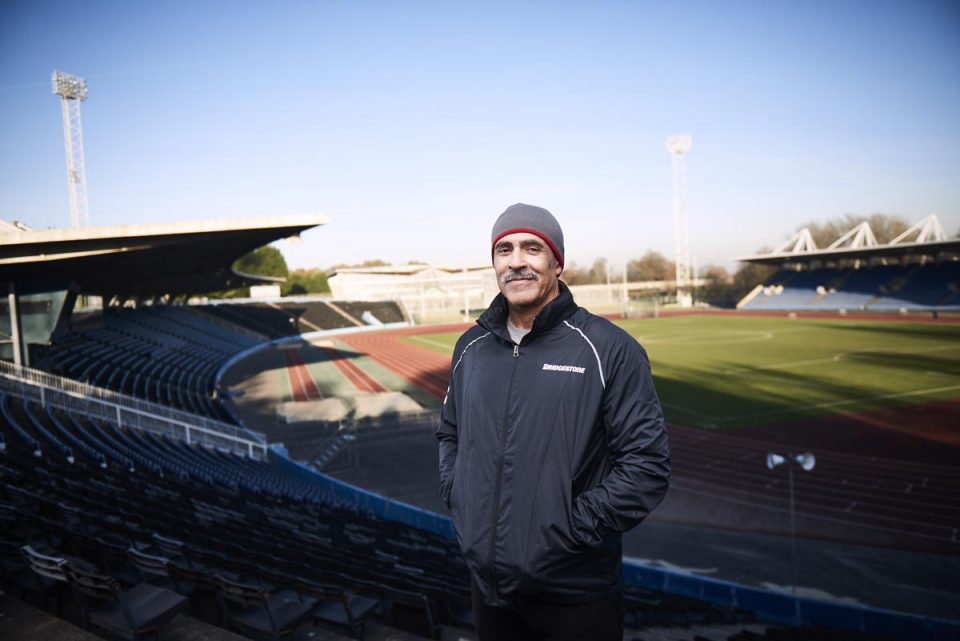Daley Thompson interview: Double Olympic champion on why the world needs Tokyo 2020 to happen and why he’d be happily compete with Covid restrictions

Daley Thompson chuckles as he remembers the contrasting backdrops to his two Olympic gold medals.
“The first time I won was in Moscow. It was pretty dull and dreary, the weather wasn’t great and the place didn’t seem to hold a lot of joy,” Thompson tells City A.M. “The next one was in Los Angeles and it was all swimming pools and movie stars.”
For those athletes competing at the delayed Tokyo 2020 Olympics later this month, however, very little of Japanese life will colour their experience.
They will largely be confined to beige accommodation and training facilities, with sightseeing and socialising strictly forbidden and spectator numbers heavily restricted as Japan attempts to minimise the risk of thousands of arrivals from all over the world triggering a spike in Covid-19 cases.
Instead, Tokyo 2020 will be about the sport and little else for athletes. But those conditions wouldn’t have fazed him, says Thompson, Britain’s greatest multi-event sportsman.
“I wouldn’t have minded at all because all I’d have been thinking about for the last three or four years was going to the Olympic Games,” he adds.
“I wouldn’t have been going to be a tourist; I’d have been going to do the sports. The other stuff is a bonus. And I’d like to think that most athletes are fairly single-minded.
“Being a decathlete, 99 per cent of your competitions are done with only five or six people watching, so for me it would have made absolutely no difference.
“Maybe there are a lot of athletes who feed off the crowd and stuff. But I suspect most of them just want to be at the Olympics.”

That cuts to the heart of why Thompson, now 62, is so pleased that Tokyo 2020 is going ahead despite calls for it to be postponed again or cancelled.
“Something like 80 per cent of Olympians only go to one Games,” he says. “It’s their only chance to fulfil that particular dream.”
It’s not just about the athletes, he says: “I think the world needs the distraction. Most of us have had a fairly miserable last 18 months and could do with some sunshine.”
Thompson backs Asher-Smith for Tokyo 2020 medal
Thompson had hoped to be heading to Tokyo as a broadcaster or guest of a sponsor – he is an ambassador for Bridgestone, an official partner of the Olympic and Paralympic Games.
To his disappointment, however, Covid restrictions on numbers mean he will be in Salford rather than Shinjuku.
He will be part of the BBC’s coverage alongside fellow track and field greats Jess Ennis-Hill, Michael Johnson, Denise Lewis and Steve Cram.
“They look at it like I do and it’s nice to be in their company. It’s not a bad second best,” he concedes.
Thompson expects Britain’s female athletes, led by sprinter Dina Asher-Smith, to outshine their male team-mates in Japan.
Asher-Smith, the world champion over 200m, will also run in the 100m, where she faces stiff competition from two-time winner Shelly-Ann Fraser-Pryce among others.
“For the first time ever, the girls will probably outshine the guys and I think it’s brilliant,” he says.
“The women’s 100m could be the best race of the whole Games. And it’d be great if Dina Asher-Smith stepped up and took it.
“If she can reproduce the stuff she’s capable of she’ll definitely come home with a medal and there’s no reason why it shouldn’t be a gold. Because she’s brilliant.”
‘No room to be soft’ – on UK Sport’s new approach
Team GB finished second in the medal table at the Rio 2016 Olympics and third at London 2012, a result of UK Sport’s “no compromise” approach to allocating funding.
This time expectations are more muted. Medal targets have been scrapped, while “no compromise” has been relaxed following criticism that it penalised minority sports and fostered unhealthy treatment of athletes.
Thompson, an avuncular and enthusiastic interviewee, doesn’t shy away from the difficult topic.
“It’s gone out of fashion,” he says of UK Sport’s hardline stance. “I don’t think that the athletes are going to be any less committed.

“And to be honest, it’s a rough and tumble bloody workplace. It’s a tough environment and there’s no room to be soft.
“Obviously there’s a balance – you don’t want people abused and all that kind of stuff – and I think in the main we get it right.
“We won shedloads in Rio. If we don’t win so much people might want to bring the old-fashioned ways back.”
Thompson on ‘super spikes’ and taking the knee
Thompson is also forthright on so-called “super spikes”, a new generation of running shoes whose emergence has coincided with a slew of new world records.
He compares it to the situation faced by swimming, which banned non-textile swimsuits in 2009 after more than 100 records tumbled in a year.
“I think the shoes do have something to do with it [the faster times],” he says. “What you wouldn’t want, though, is for it to get like it was in swimming. Hopefully we won’t get into that position.”
And neither does he dodge another issue that has stirred controversy ahead of Tokyo 2020: taking the knee.
Athletes have been told they could face punishment for adopting the gesture, used to highlight racial and social injustice.
The International Olympic Committee (IOC) said it polled 3,500 athletes on banning taking the knee, but British sprinter Adam Gemili called the move “naive” and accused the IOC of hypocrisy.
“I think that athletes are more than entitled to have an opinion, and if they want to tell people about it then they should be able to,” he says.
“The IOC are too sensitive to things in the world. In my opinion – and maybe if I say it too loud I won’t get an invite – but they’ve never really allowed the athletes any kind of say in what goes on.
“Maybe the athletes should have a voice. And the Olympics is as good a place as any to use that voice.”
Daley Thompson is an Olympic ambassador for Olympic and Paralympic partner Bridgestone as part of its Chase Your Dream No Matter What campaign. https://www.bridgestone.co.uk/tokyo-2020
